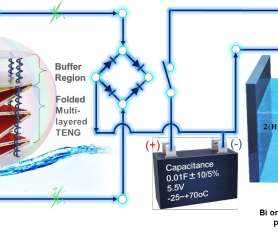Researchers develop wave-energy-driven CO2 reduction system for production of carbon-based liquid fuels
Green Car Congress
DECEMBER 11, 2019
A team from King Abdullah University of Science and Technology (KAUST), Beijing Institute of Nanoenergy and Nanosystems, and Georgia Tech has developed a a wave-energy-driven electrochemical CO 2 reduction system that converts ocean wave energy to chemical energy in the form of formic acid, a liquid fuel. Leung et al.













Let's personalize your content